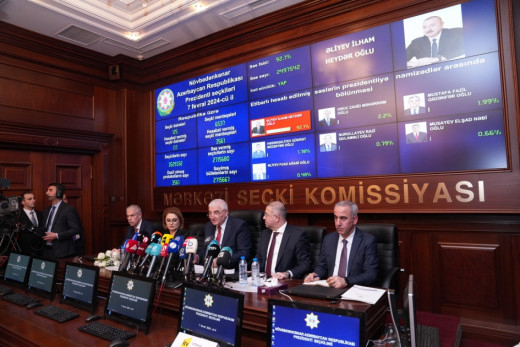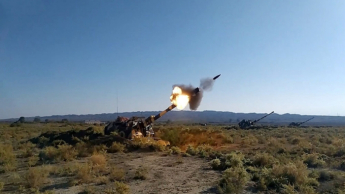Snap Presidential Elections 2024: Democracy as Ritual, Sovereignty as Principle

|

A nation can be understood by its beliefs, values, and principles. According to the social sciences, societal behavior is a predicament of these core components. I am honored and privileged to observe the beliefs, values, and societal principles of Azerbaijan.
During my visit to Baku as an International Election Observer, I interacted with the rituals and institutions of Azerbaijan. Democracy as an institution and participation in the process as a ritual encompasses Azerbaijani society at the micro, mezzo, and macro levels. The smoothness of the process demands acknowledgment for the administrative and bureaucratic institutions, but even being the most effective in these two institutions cannot fortify democracy as an institution until and unless society at all three micro, mezzo, and macro levels truly believes in the governing system, values the idea of sovereignty and freedom, and is eager to follow the principles of shared future based on collective success as a society.
I have been analyzing and researching Azerbaijan for more than five years now, and I must admit that my analysis could have been classified as an etic perspective until I had the opportunity to transform it into an emic perspective. I already knew that Azerbaijani society truly believes in a shared future and adheres to a strong sense of national pride. I thoroughly covered and analyzed the recapturing of the illegally occupied territories of Azerbaijan. Karabagh, Shusha, and Fuzuli, the epitomes of sovereignty and nationhood, signify a nation’s commitment and resilience toward its beliefs, values, and principles.
As I was discussing emic and etic perspective terms extensively used in sociology and anthropology, describe personal vs others’ perspective. The understanding gained by personal experience is called an emic perspective, and understanding acquired by third-party means is considered an etic perspective. The relevance of these concepts is innately relatable to my own emic and etic perspectives.
As an Election Observer, I visited more than 10 polling stations, and the calm and harmony engulfed my heart, which has no valuable relevance in relation to Western-style superficial democracy. In contrast, Azerbaijanis are immensely invested in the electoral process, and the zeal I saw during the election day was a manifestation of societal trust in the system. No social media hate-mongering, nor any slurring or name-calling, I observed that people are free to choose whoever they find suitable; hence, they are closely knit together as a society.
Fair and free elections are catalysts for peace and prosperity, and the people of Azerbaijan fully understand that and the demonstration of their sheer commitment to democracy as an institution can be read through their attire, conduct, and behavior.
The eager participation and realization of their duty toward their nation can be seen in the accompanied young kids, who are dressed up as they are celebrating something and their participation in the process, as I witness that elders after marking the ballot paper were giving the folded paper to their kids to drop it into the box. This not only shows the adults’ commitment and duty toward their fellow countrymen to choose wisely but also transfers the entire process to the next generation, who will then continue this tradition as a ritual for all times to come.
Efficient administrative structure and public trust were the highlights of the Azerbaijan presidential election. The polling stations I visited had more than 80% voter turnout, as I gathered data on the registered voters in the constituency I visited and the number of votes cast starting from early morning to 7. pm.
My correlation plus my material and ideational field notes indicated a couple of points, such as ideationally people were treating election day as a ritual and were in a festive mood, materially they were not only fulfilling their sacred duty but also bringing their children to experience the process, the staff was highly trained, and the entire process was organized from the micro to macro level.
There was no chaos, unrest, or mistrust in the air. The voters spent considerable time before and after casting their votes socializing with their friends and family. They were smiling at us, profoundly welcoming toward us although it was not their obligation to give us pleasant gestures.
I believe that higher turnout in Azerbaijani elections is the result of parents’ training that is passed on to their children by bringing them to polling stations and teaching them at a very young age that polling their votes is a national responsibility and a debt that one has to pay off. Observing the Snap Presidential Elections of Azerbaijan provided me an opportunity to understand how nations are raised to stand together whenever it is demanded by their motherland, and we have seen how the Azerbaijani nation responded recently by liberating and reclaiming their lands that were under the illegal occupation of Armenia. Long Live Azerbaijan—Long Live Azerbaijanis—
The author is an author, and analyst and writes articles for national and international media outlets. She did her M.Phil in Cognitive Semiotics from Aarhus University Denmark and is completing her Ph.D. in Semiotics and Philosophy of Communication at Charles University Prague.
(If you want to contribute and have specific expertise, please contact us at [email protected])
The Rocket and Artillery formations of the Azerbaijan Army conduct live-fire exercises in accordance with the combat training plan for 2021, the Ministry of Defense of Azerbaijan told Baku Tribune.
LAST NEWS





.jpg&h=67&w=67&zc=1&q=100)













